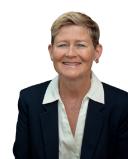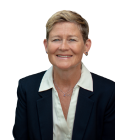Sexual Orientation
High school teacher suspended after assigning an article on homosexuality in animals
Should teachers ask their students to learn about controversial topics?
Posted October 30, 2009
Yesterday, Mr. Delong, a 10th and 12th grade Honors English teacher in Piasa, IL was suspended for assigning an article about homosexuality in the animal kingdom to his students. Should teachers ask their students to read about controversial topics? Should we allow parents veto power over the curriculum?
The local paper reporting this story quoted the teacher saying, "I have been suspended, but not without pay," Delong, of Carlinville, said Wednesday. "But I would rather not comment further until I speak with my union representative." In true student-activism fashion, a Facebook group called "Bring back Mr. Delong" has been created to show support and share information about this situation. I thank this group for sharing this photo.
Mr. Delong is reportedly a married, heterosexual teacher who identifies as an ally of the GLBTQ community and clearly has the respect and admiration of his students. This is just one of many examples of how teachers are taught to be conservative and non-controversial and why GLBTQ youth don't feel safe in schools. If a school district considers teaching with a scientific article written by a professor at Stanford University and published in a popular science magazine as controversial and worthy of suspension - then how can we convince other educators to stand up and teach critically? In order to help students learn to become critical thinkers and active citizens in a participatory democracy, it is essential to have teachers encourage students to question normative thinking and learn to critically evaluate information for themselves -- particulary with respect to sex, gender, and sexuality.
How suspending Mr. Delong teaches fear and intolerance
Mr. Delong's assigned reading asks students to question the dominance and "naturalness" of heterosexuality. He is helping his students understand concepts such as heterosexism and heteronormativity. The concept of homosexuality and subsequently heterosexuality is just over a century old (Jagose, 1996, 17). The resulting prejudice against those who deviate from this social script has been carefully developed by institutional heterosexism through the powerful institutional discourses of organized religion, medicine, sexology, psychiatry, and psychology (Bem, 1993, 81). Sandra Bem explains how the cultural lens of gender polarization works to reinforce heterosexuality by serving two major functions, "first, it defines mutually exclusive scripts for being male and female. Second, it defines any person or behavior that deviates from these scripts as problematic...taken together, the effect of these two processes is to construct and naturalize a gender-polarizing link between the sex of one's body and the character of one's psyche and one's sexuality" (1993, 81).
These powerful social discourses are generated through various institutions including schools. Educational structures wield extraordinary ideological power due to their role in teaching what the culture has deemed as important and valuable to future generations. Ministries of Education, textbook publishers, and teachers, determine what lessons are passed on to students and whose knowledge or "truth" is valued (Apple, 1990, 2000). Subsequently, schools are important sites that contribute to the normalization of heterosexual behavior. Ironically, schools make efforts to de-sexualize the experience of students while they simultaneously, subtly yet clearly, affirm heterosexual behavior and punish those who appear to deviate from it. Epstein and Johnson explain, "Schools go to great lengths to forbid expressions of sexuality by both children and teachers. This can be seen in a range of rules, particularly those about self-presentation. On the other hand, and perhaps in consequence, expressions of sexuality provide a major currency and resource in the everyday exchanges of school life. Second, the forms in which sexuality is present in schools and the terms on which sexual identities are produced are heavily determined by power relations between teachers and taught, the dynamics of control and resistance" (1998, p. 108).
These acts of surveillance are rooted in Foucault's (1975) concept of the Panopticon - an all-seeing, yet completely invisible source of power and control. This type of surveillance and control is particularly effective because we all unknowingly contribute to it unless we actively work to make it visible by questioning and challenging it. This is part of the task for queer theory. Another example of this panopticonic power is seen in what Mills (1996) calls ‘containment discourses'. He explains how these methods of control are employed to limit work by teachers that push the boundaries of what is "comfortable." The discourse of teacher ‘professionalism' is one of the most powerful educational discourses in its containment of teacher-student challenges to the existing heteronormative order. It regulates and monitors the boundaries between students and teachers so that much remains deliberately unspoken or unconsciously unseen. Teachers who resist the heteronormativity of the school, of one's teaching peers, are liable to be accused of unprofessional activity or have their careers ended (cited in Martino & Pallotta-Chiarolli, 2003, 227).
This is one of the most powerful ways that schools reinforce heterosexism. Through the surveillance and policing of bodies and language, school structures mandate hyper-heterosexuality using the curriculum and extra-curricular activities. The heterosexuality of the curriculum is invisible to many, but some examples include: the exclusive study of heterosexual romantic literature, the presentation of the ‘nuclear' heterosexual two-parent family as the norm and ideal, and teaching only the reproductive aspects of sexuality and abstinence-only sex education. Other forms of relationships and the concept of desire, or eros, are completely omitted from the official curriculum (Britzman, 2000; Pinar, 1998). Extra-curricular functions that teach this hyper-heterosexuality include Valentine's Day gift exchanges, kissing booths at school fairs, and deeply entrenched prom rituals that include highly gendered formal attire (tuxedos and gowns) and the election of a "king" and a "queen". This prom ritual has begun to be subverted by alternative proms often organized by gay-straight alliances or community youth groups. At these events there are often two kings (a male king and female "drag king") and two queens (a female queen and a male "drag queen").
Art Lipkin's (1999) groundbreaking work, Understanding Homosexuality, Changing schools, provides in-depth accounts of the discrimination experienced by gay, lesbian, and bisexual educators as well as the painful and enduring stories of students who were emotionally and physically harassed for their perceived or actual non-heterosexual, non-gender conforming performance of identity. In other words, schools are not safe for "guys who aren't as masculine as other guys" or "girls who aren't as feminine as other girls" (Coalition, 2004). Although the people in control of the school are not directly inflicting the harassment and harm on the non-conforming students (in most cases), it is their lack of effective intervention in cases of homophobic and sexual harassment (Coalition, 2004; Harris, 2001; Kosciw & Diaz, 2006; NMHA, 2002) along with the invisible scripts of the school that are reinforced through surveillance and discipline that sends the message that these borderland identities are not valued or welcomed.
Heterosexism and its more overt partner, homophobia, are very clearly linked to cultural gender boundaries and are informed by the imbedded practice of misogyny. The most effective challenge to any boy's masculinity is to call him ‘gay', ‘homo',‘fag', or ‘queer' (Epstein & Johnson, 1998; Mac an Ghaill, 1995; Martino & Pallotta-Chiarolli, 2003). What is being challenged is his masculinity - his gender code - but it is being done by accusing him of being gay which is equated with being ‘feminine'. Girls are also subject to similar kinds of policing (Brown, 2003; Duncan, 2004), but research shows that it is much more prevalent among male students (Harris Interactive, 2001; Coalition 2004). It is for this reason that some activists and educators are pushing for a deconstruction of gender codes and de-labeling of sexual orientations. By continuing to live within prescribed linguistic and behavioral matrices, the hierarchical binaries of male-female and gay-straight remain unchallenged. This work of dismantling socially invented categories is necessary to create educational spaces that liberate and create opportunities as opposed to limiting and closing down the diversity of human experiences. We must move towards understanding identities and experiences as falling on a continuum of gender expressions and sexual orientations.
How critical and queer pedagogy and community support can transform schools
In Kevin Kumashiro's (2002) work, Troubling Education: Queer Activism and Antioppressive Pedagogy he writes, "learning is about disruption and opening up to further learning, not closure and satisfaction" (43) and that "education involves learning something that disrupts our commonsense view of the world" (63). By doing away with the docile, submissive, "banking" style of learning in schools, we can open up more educational possibilities and socially just experiences for future citizens rather than confine them with ideologies of traditional heterosexist gender roles. In order to move in this direction, it is important to work through the current obstacles that prevent teachers from teaching critically and connecting with their students and communities in meaningful ways. In order to move in this direction, we need to support the work of critical educators such as Mr. Delong who through their teaching work to transform oppressive educational spaces. Parents, educators, and community members need to ensure that critical educators are supported by their unions, their administrators, and their communities when a few "squeaky wheels" try to exert influence over what happens in the classroom. Parents should not be allowed to silence discussion and close-off important learning opportunities based on their own prejudices and fears. Please join the Facebook group to show your support for this brave teacher. We need more leaders like him in the classroom.
Thanks to the Wicked Gay Blog for first bringing this story to my attention.




